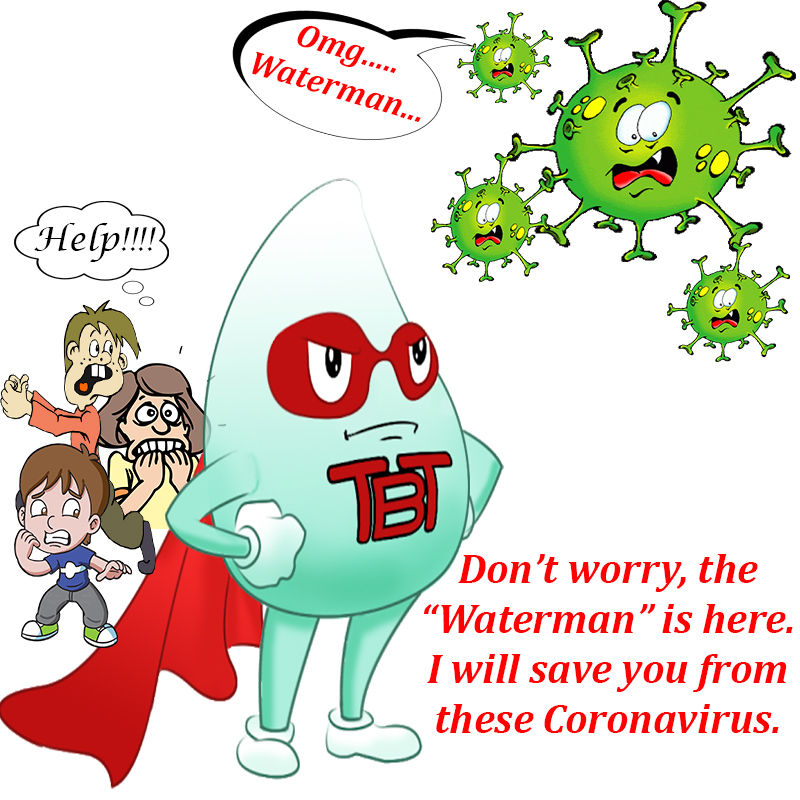Water as a “Super Hero”
- Preeti Rawat
- Mar 30, 2020
- 3 min read
As we all know world is facing novel coronavirus (2019-nCoV or COVID-19). In this time water play a vital role in our life. Water as a hero safe us from this virus. And if you are wasting water in today’s time you are the culprit. Did you know WHO what said about this Virus? The World Health Organization (WHO) is calling it “public enemy number one.” But what information do we have that is related to coronaviruses in water and wastewater systems? And what can water- and wastewater-system operators do to protect public health?
Modern water and wastewater treatment systems play an important role in public health protection. With the potential for environmental transmission, water and wastewater operators need to know the potential for survival of this type of virus in water and wastewater treatment systems.
So, what is the fate of coronavirus in sewage and wastewater treatment plants? Or in the aquatic environment? And should we be worried about the efficacy of water treatment filtration and disinfection processes for coronavirus removal and inactivation?
The short answer: No — if we take proper precautions and risk considerations.
The long answer: This is a new virus without an extensive body of literature on the effectiveness of water and wastewater treatment processes. And real-life experiences will vary due to water quality and treatment plant details.

("Waterman")
How COVID-19 transmitted?
Human viruses do not replicate in the environment. For a coronavirus to be transferred via the water cycle, it must have the ability to survive in human waste, retain its infectivity, and come in contact with another person — most likely via aerosols. Findings suggest that COVID-19 can be transmitted through human waste.
Should a major virus pandemic occur, wastewater and drinking water treatment industries would face increased scrutiny. Utilities would need to respond rapidly to minimize occupational and public health risks based on the available evidence. Wastewater effluents would possibly impact recreation, irrigation, and drinking waters. While wastewater treatment does reduce virus levels, infective human viruses are often detected in wastewater treatment plant effluent.

(Image source: Goggle Image)
So now what?
There are the following steps to help prevent the spread of germs during this situation:
Stay home if you can and avoid gatherings of more than ten people.
Practice social distancing by keeping a distance of about six feet from others if you must go out in public.
Wash your hands often with soap and water for at least 20 seconds, especially after being in a public place, or after blowing your nose, coughing or sneezing. If soap and water are not readily available, use a hand sanitizer with at least 60% alcohol.
Avoid touching your eyes, nose or mouth with unwashed hands.
Avoid close contact with people who are sick.
Stay home if you are sick, except to get medical care.
Cover your nose and mouth with a tissue when coughing or sneezing; throw used tissues in the trash. If a tissue isn’t available, cough or sneeze into your elbow or sleeve, not your hands.
Wear a face mask if you are sick. You should wear a face mask when you are around other people (e.g., sharing a room or vehicle) and before you enter a healthcare provider’s office.
So, it is a humble request to all please follow these tips and prevent you or your love ones with this virus and one more request doesn’t waste water. Water is very precious for us. One drop of water will change the scenario. If you see anyone who doesn’t have a sanitizes or water, please help them and give them safety things.
We all fight with this virus together and make the world smile again. And follow government orders also.
SAVE WATER, SAVE LIFE!!!

Comments